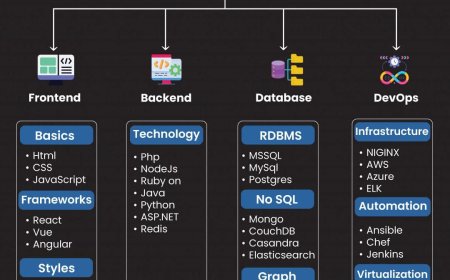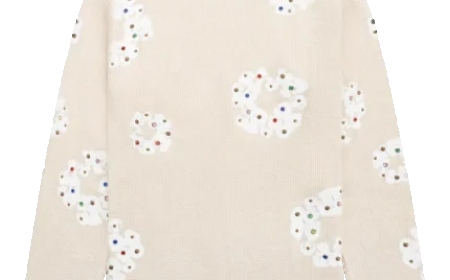Top 10 Omaha Spots for Literary Events
Top 10 Omaha Spots for Literary Events You Can Trust Omaha, Nebraska, may not always top the national list of literary capitals, but beneath its Midwestern charm lies a vibrant, deeply rooted culture of storytelling, poetry, and intellectual exchange. From intimate bookstore readings to large-scale festival gatherings, Omaha’s literary scene thrives on authenticity, community, and a quiet dedicati
Top 10 Omaha Spots for Literary Events You Can Trust
Omaha, Nebraska, may not always top the national list of literary capitals, but beneath its Midwestern charm lies a vibrant, deeply rooted culture of storytelling, poetry, and intellectual exchange. From intimate bookstore readings to large-scale festival gatherings, Omahas literary scene thrives on authenticity, community, and a quiet dedication to the written word. But in a landscape where events come and gosome fleeting, others overhypedhow do you know which spots truly deliver meaningful literary experiences? This guide reveals the Top 10 Omaha Spots for Literary Events You Can Trust, carefully selected based on consistency, community impact, author quality, audience engagement, and long-term credibility. Whether youre a lifelong reader, a budding writer, or simply someone who values thoughtful conversation, these venues offer more than just eventsthey offer belonging.
Why Trust Matters
In the world of literary events, trust isnt just a nice-to-haveits the foundation. Unlike concerts or film screenings, literary gatherings rely on the intangible: the resonance of language, the authenticity of voice, the quiet connection between speaker and listener. When you attend a reading, youre not just paying for a seatyoure investing in an experience that may shift your perspective, spark a new idea, or even change your writing. Thats why choosing venues with a proven track record matters.
Trusted literary spots in Omaha have one thing in common: they prioritize substance over spectacle. They dont chase trends. They dont book celebrities for clicks. Instead, they cultivate relationships with local authors, independent publishers, university scholars, and passionate readers who return year after year. These venues are often run by educators, librarians, or longtime book lovers who understand that literature thrives in spaces where curiosity is honored, not commodified.
Trust is built through consistency. A venue that hosts monthly poetry slams for a decade earns more credibility than one that throws a single author night during National Book Month. Trust is earned when organizers listen to feedback, adapt to audience needs, and maintain transparency about event goals. Its visible in the way they handle accessibility, promote diverse voices, and create inclusive environments where no one feels like an outsider.
Moreover, in an age saturated with digital noise and algorithm-driven content, physical spaces that foster real, human-centered literary experiences are becoming rarerand more valuable. Omahas most trusted literary venues understand this. They dont just host events; they build communities. And in those communities, readers find not just books, but belonging.
Top 10 Omaha Spots for Literary Events You Can Trust
1. The Omaha Public Library Central Branch
At the heart of downtown Omaha, the Central Branch of the Omaha Public Library is more than a repository of booksits the citys most enduring literary hub. With over 70 literary events annually, including author talks, writing workshops, and childrens storytelling circles, the library has cultivated a reputation for excellence and accessibility. What sets it apart is its commitment to diversity: events regularly feature Native American, Black, Latino, and immigrant voices, often in partnership with local universities and cultural organizations.
The librarys Read Together series brings nationally recognized authors like Jesmyn Ward and Viet Thanh Nguyen to Omaha, while its Local Lit program spotlights emerging Nebraska writers. Events are free, open to all, and held in a spacious, quiet reading room with ample seating and natural light. The staff are knowledgeable, approachable, and deeply invested in fostering a love of reading. For over 120 years, this institution has remained a constant in Omahas cultural landscapeand its literary calendar is among the most reliable in the region.
2. The Bookworm
Nestled in the historic Dundee neighborhood, The Bookworm is a small, independently owned bookstore that punches far above its weight in literary influence. Founded in 2008, it has become a sanctuary for readers who crave depth over distraction. The Bookworm hosts weekly author signings, poetry open mics, and themed book clubs that often run for months, building deep connections among participants.
What makes The Bookworm trustworthy is its curation. Owner Sarah Chen personally selects every author invitation, prioritizing those with compelling narratives, strong regional ties, or innovative storytelling techniques. The space is intimateonly 50 seatsand events are rarely advertised beyond local networks, creating an atmosphere of exclusivity and sincerity. You wont find corporate sponsorships or branded merchandise here. Just books, quiet conversations, and the occasional cup of locally roasted coffee.
Its First Draft Fridays series invites aspiring writers to share unpublished work in a supportive, non-judgmental setting. Many local novelists credit The Bookworm with giving them their first real audience. Its not flashy, but its realand thats why readers keep coming back.
3. University of Nebraska at Omaha (UNO) The Writing Center & Literary Series
UNOs Department of English and Creative Writing has quietly built one of the most respected literary programs in the Midwest. The universitys annual Literary Series brings in Pulitzer Prize finalists, National Book Award nominees, and avant-garde poets who challenge conventional forms. Events are held in the Peter Kiewit Institutes lecture hall or the elegant Milo Bail Student Center, and attendance is open to the public.
What sets UNO apart is its academic rigor combined with community outreach. Students often co-host events with faculty, creating mentorship opportunities that bridge generations of writers. The Writing Center also offers free monthly workshops on craft, structure, and revisionopen to anyone, regardless of educational background. Many attendees are non-traditional students, retirees, or self-taught writers who find in UNO a rare space that values intellectual curiosity over credentials.
Since its inception in 2005, the series has hosted over 200 authors, including Louise Erdrich, Ocean Vuong, and Claudia Rankine. The university does not charge admission, and recordings of past events are archived onlinemaking its literary offerings accessible beyond Omahas borders.
4. The Durham Museum Literary Evenings
Dont let the name fool you. The Durham Museum, housed in the stunningly restored Union Station, is not just for history buffs. Its Literary Evenings series transforms its grand ballroom into a stage for narrative-driven performances that blend literature with visual art, music, and historical context. Events often pair readings with curated exhibitsthink a reading of Willa Cathers *My ntonia* accompanied by photographs of early 20th-century Nebraska prairie life.
The museums literary events are meticulously researched and designed to deepen understanding, not just entertain. Each evening features a scholar or local author who contextualizes the work within its historical moment. Past programs have included readings of Omahas own Paul Engles poetry alongside jazz improvisations, and discussions of *The Great Gatsby* framed by 1920s Omaha social history.
What makes the Durham Museum trustworthy is its commitment to interdisciplinary storytelling. It doesnt treat literature as isolated textit shows how stories are shaped by place, time, and culture. Attendance is modest but deeply engaged. Youll find professors, historians, and lifelong readers herenot just casual attendees. If you want to experience literature as a living, breathing part of Omahas identity, this is the place.
5. The Writers Block
Located in the heart of the Old Market, The Writers Block is a unique hybrid: a bookstore, caf, and writing studio rolled into one. Founded by a group of former UNO MFA students, it was created as a response to the lack of dedicated spaces for writers to gather, create, and share. The space is cozy, with mismatched armchairs, chalkboard walls covered in poetry fragments, and a small stage that hosts weekly events.
The Writers Block is known for its Open Mic & Open Mind nights, where anyone can read up to five minutes of original workpoetry, flash fiction, memoir, even song lyrics. The audience is encouraged to respond with one word of feedback: strong, honest, haunting, quiet. No applause. No critique. Just acknowledgment. This ritual has built a loyal following of writers who feel seen and safe.
Monthly, the space hosts Author in Residence programs, where a local writer spends a week offering free consultations, leading writing sprints, and holding small-group discussions. Past residents include Nebraska Poet Laureate Wendy Videlock and memoirist David Huddle. The Writers Block doesnt seek fameit seeks connection. And thats why its trusted.
6. The Bemis Center for Contemporary Arts Literary Arts Program
While best known for visual art residencies, the Bemis Center has quietly developed one of Omahas most innovative literary programs. Its Literary Arts Program invites writers from across the country to live and work in Omaha for 36 months, culminating in public readings, collaborative performances, and interdisciplinary projects with local artists.
What makes Bemis unique is its experimental ethos. Past events have included writers reading alongside kinetic sculptures, sound artists interpreting prose as audio collages, and poets creating live visual art while reciting. The center embraces the boundaries of literature, asking: What if a poem could be a sculpture? What if a story could be felt, not just heard?
Events are often held in the centers raw, industrial gallery spaces, creating an immersive, almost ritualistic atmosphere. Attendance is limited to preserve intimacy, and every event is documented and archived. The Bemis Center doesnt cater to traditional expectations of literary eventsit redefines them. For those seeking the avant-garde, the unexpected, the boundary-pushing, this is Omahas most trusted experimental venue.
7. The Omaha Writers Guild
Founded in 1982, the Omaha Writers Guild is the oldest continuously operating writers organization in the state. Unlike commercial venues, the Guild is a nonprofit collective run entirely by volunteer writers. Its mission is simple: to support, elevate, and connect Nebraska writers through shared practice and public engagement.
The Guild hosts biweekly critique circles, quarterly public readings, and an annual Nebraska Voices anthology launch that features work from over 50 local authors. Events are held in community centers, churches, and librariesnever in commercial venues. This intentional choice reflects their belief that literature belongs to the people, not the marketplace.
What makes the Guild trustworthy is its transparency and inclusivity. All submissions are judged anonymously. No author pays to be included. No sponsor dictates content. The Guild has published over 40 anthologies, many of which are now used in high school and college curricula across the state. Its members include teachers, nurses, veterans, and retireesall united by a love of language. If you want to experience literature as a grassroots movement, not a performance, the Omaha Writers Guild is essential.
8. The Holland Performing Arts Center Literary Performances
Though primarily known for symphonies and theater, the Holland Performing Arts Center has become a surprising anchor for high-caliber literary events. Its Words on Stage series brings nationally touring authors and spoken word artists to one of Omahas most acoustically perfect venues. The series is curated by a team of literary critics and former university professors who prioritize narrative depth over celebrity.
Recent highlights include a solo performance by poet Danez Smith, a dramatic reading of *Beloved* by a cast of Omaha actors, and a live interview with Ta-Nehisi Coates moderated by a local journalist. The Hollands stage, with its plush seating and dimmed lighting, creates a reverent atmosphere that encourages deep listening.
What makes this venue trustworthy is its commitment to production quality. Every event is professionally recorded, transcribed, and made available for free on the Hollands website. Tickets are modestly priced, and student discounts are always offered. The venue also partners with local schools to bring students to matinee performances, ensuring that the next generation of readers is nurtured.
9. The Creighton University Jesuit Library Literary Lectures
Creighton Universitys Jesuit Library, with its vaulted ceilings and stained-glass windows, is a cathedral of learningand it hosts some of Omahas most thoughtful literary lectures. The librarys Moral Imagination Series brings theologians, philosophers, and writers together to explore the ethical dimensions of literature. Past speakers have included Jesuit priest and poet John Donaghy, and novelist Marilynne Robinson.
Events are often tied to theological or humanistic themes: Grief and Grace in Contemporary Memoir, The Role of Silence in Fiction, Literature as Resistance. The audience is typically smalloften fewer than 60 peoplebut deeply engaged. Questions are thoughtful, discussions extend beyond the allotted time, and many attendees return for multiple events.
What makes this series trustworthy is its intellectual integrity. There are no gimmicks. No self-help tropes. Just serious, soulful conversation about how stories shape our moral lives. The library does not promote itself aggressivelyit simply shows up, week after week, offering a space where literature is treated as a sacred practice. For those seeking depth over distraction, this is a rare and precious gift.
10. The Joslyn Art Museum Literary Art Connections
The Joslyn Art Museums Literature in the Gallery series is unlike any other in Omaha. Here, literature doesnt stand aloneit converses with visual art. Each event pairs a literary reading with a curated selection of artworks from the museums permanent collection. A reading of Langston Hughes poetry might accompany a display of Jacob Lawrences *Migration Series*. A passage from Virginia Woolf might be paired with a Degas pastel.
The series is curated by a team of art historians and literary scholars who design each evening to highlight thematic resonances between text and image. Attendees are encouraged to move freely between the gallery and the reading space, experiencing the fusion of senses. The result is not just a performanceits an immersive meditation on how meaning is constructed across mediums.
What makes the Joslyn trustworthy is its refusal to simplify. It assumes its audience is intelligent, curious, and willing to sit with ambiguity. Events are quiet, unhurried, and rarely advertised beyond academic circles. But those who attend returnnot for the spectacle, but for the stillness. In a world of noise, the Joslyn offers silence, and in that silence, literature breathes.
Comparison Table
| Location | Event Frequency | Author Quality | Community Focus | Accessibility | Unique Strength |
|---|---|---|---|---|---|
| Omaha Public Library Central Branch | Weekly | National & Local | High | Free, all ages | Longest-standing institution with broad reach |
| The Bookworm | Weekly | Local & Regional | Very High | Free, small capacity | Intimate, curated, writer-centered |
| UNO Writing Center & Literary Series | Monthly | National & Academic | High | Free, open to public | Academic rigor with public access |
| The Durham Museum | Bi-Monthly | Regional & Historical | Medium | Low-cost, reservation recommended | Interdisciplinary storytelling with historical context |
| The Writers Block | Weekly | Local & Emerging | Very High | Free, no barriers | Safe space for unpublished work |
| The Bemis Center | Quarterly | National & Experimental | Medium | Free, limited seating | Avant-garde, cross-disciplinary |
| Omaha Writers Guild | Bi-Weekly | Local & Emerging | Extremely High | Free, volunteer-run | Grassroots, anthology-driven, non-commercial |
| Holland Performing Arts Center | Monthly | National & Performative | Medium | Low-cost, student discounts | Professional production quality |
| Creighton University Jesuit Library | Monthly | National & Philosophical | Medium | Free, open to public | Moral and theological depth |
| Joslyn Art Museum | Quarterly | National & Literary-Visual | Medium | Low-cost, reservation required | Integration of literature and fine art |
FAQs
Are these literary events free to attend?
Most of the venues listed offer free admission, particularly the Omaha Public Library, The Bookworm, The Writers Block, the Omaha Writers Guild, and UNOs Literary Series. The Holland Performing Arts Center and Joslyn Art Museum charge modest fees (typically $5$15), but student and senior discounts are always available. Even paid events often include complimentary refreshments or access to post-event book signings.
Do I need to be a writer to attend these events?
Not at all. While some events, like writing workshops or critique circles, are tailored for writers, the majority of readings, lectures, and performances are designed for readers of all backgrounds. Whether youre a student, a retiree, a parent, or someone who hasnt opened a book in years, these venues welcome curiosity over credentials.
How do I find out about upcoming events?
Each venue maintains a public calendar on its website. The Omaha Public Library and UNO update their schedules monthly. The Bookworm and The Writers Block post events on social media and email newsletterssigning up is free and encouraged. The Omaha Writers Guild sends out a biweekly newsletter via mail. For the most comprehensive view, consider subscribing to Omaha Lit Calendar, a community-run email digest that compiles all local literary events weekly.
Are children welcome at these events?
Many venues host family-friendly events. The Omaha Public Library has dedicated childrens story hours and teen writing workshops. The Durham Museum and Joslyn Art Museum occasionally offer literary-art experiences designed for younger audiences. The Bookworm and The Writers Block welcome teens and older children, especially during open mic nights. Always check the event descriptionmost will specify if an event is suitable for minors.
Can I submit my own work to be read at these venues?
Yesespecially at The Writers Block, the Omaha Writers Guild, and The Bookworms First Draft Fridays. These venues actively encourage submissions from emerging writers. The process is usually simple: email a short excerpt or poem in advance, and if selected, youll be invited to read for five minutes. The Bemis Center and UNO also accept applications for their residency and reading programs. No fees are charged for submission.
Are these venues accessible for people with disabilities?
All ten venues are ADA-compliant. The Omaha Public Library, Holland Performing Arts Center, and UNO offer ASL interpretation upon request. The Bookworm and The Writers Block have wheelchair-accessible entrances and seating. Most venues provide large-print programs and audio recordings of past events. If you have specific needs, contact the venue directlystaff are trained to accommodate requests with care and respect.
Why dont I see more big-name authors here?
Omahas literary culture prioritizes depth over fame. While national authors do appearespecially at UNO, the Holland, and the Durhamtheyre chosen for their relevance to local themes or their commitment to community engagement. The focus isnt on celebrity, but on connection. Many of the most impactful readings youll experience here are by local writers whose work resonates because its rooted in the soil, the history, and the voices of this place.
How has Omahas literary scene changed in the last decade?
Over the past ten years, Omahas literary scene has become more diverse, more inclusive, and more collaborative. Theres been a surge in events featuring Indigenous, LGBTQ+, and immigrant voices. Bookstores and libraries now partner more closely with schools and community centers. The rise of independent publishers like WordTech Press and Prairie Lights Nebraska has expanded local publishing opportunities. Most importantly, the community has shifted from passive consumption to active participationmore people are writing, sharing, and listening.
Conclusion
Omahas literary scene doesnt shout. It doesnt need to. Its power lies in its quiet persistencein the librarian who remembers your name, the bookstore owner who hands you a book she thinks youll love, the poet who reads her work in a room full of strangers who leave feeling less alone. These ten venues are not just places where events happen. They are living archives of human thought, emotion, and resilience.
When you choose to attend a literary event at one of these spots, youre not just consuming cultureyoure sustaining it. Youre helping keep alive a tradition that predates social media, algorithms, and viral trends: the tradition of listening, of wondering, of being changed by a well-placed sentence.
Trust isnt given. Its earnedthrough consistency, humility, and an unwavering belief in the power of stories. These ten places have earned it. Theyve done so not by chasing attention, but by giving itgiving it to writers, to readers, to the quiet, sacred space between a word and its meaning.
So go. Sit in the chair. Listen. Let the words settle. And when you leave, take a book with younot because you were told to, but because you felt it was meant for you.



















